The risk of suicide is a serious problem in the United States. Each year, suicide kills more people than homicide. It is important to be aware of the warning signs and risk factors so that you can get help for yourself or someone you know if needed.
In this blog post, we will discuss what the risk of suicide is, the warning signs and risk factors, how to overcome a crisis, self-help tips, talking to a professional, therapy options, and how to support someone in a crisis.
Contents
Understanding Risk of Suicide
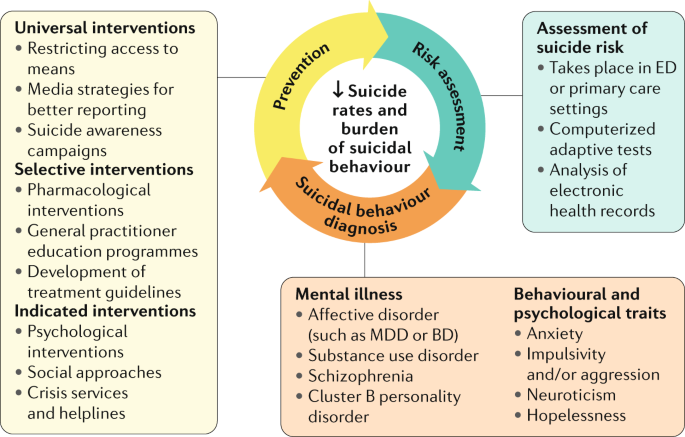
Suicide is a problem that affects people of all ages, races, religions, and socioeconomic backgrounds. It is the tenth leading cause of death in the United States, with more than 44,000 Americans dying by suicide each year. Suicide kills more people than homicide every year.
Warning Symptoms
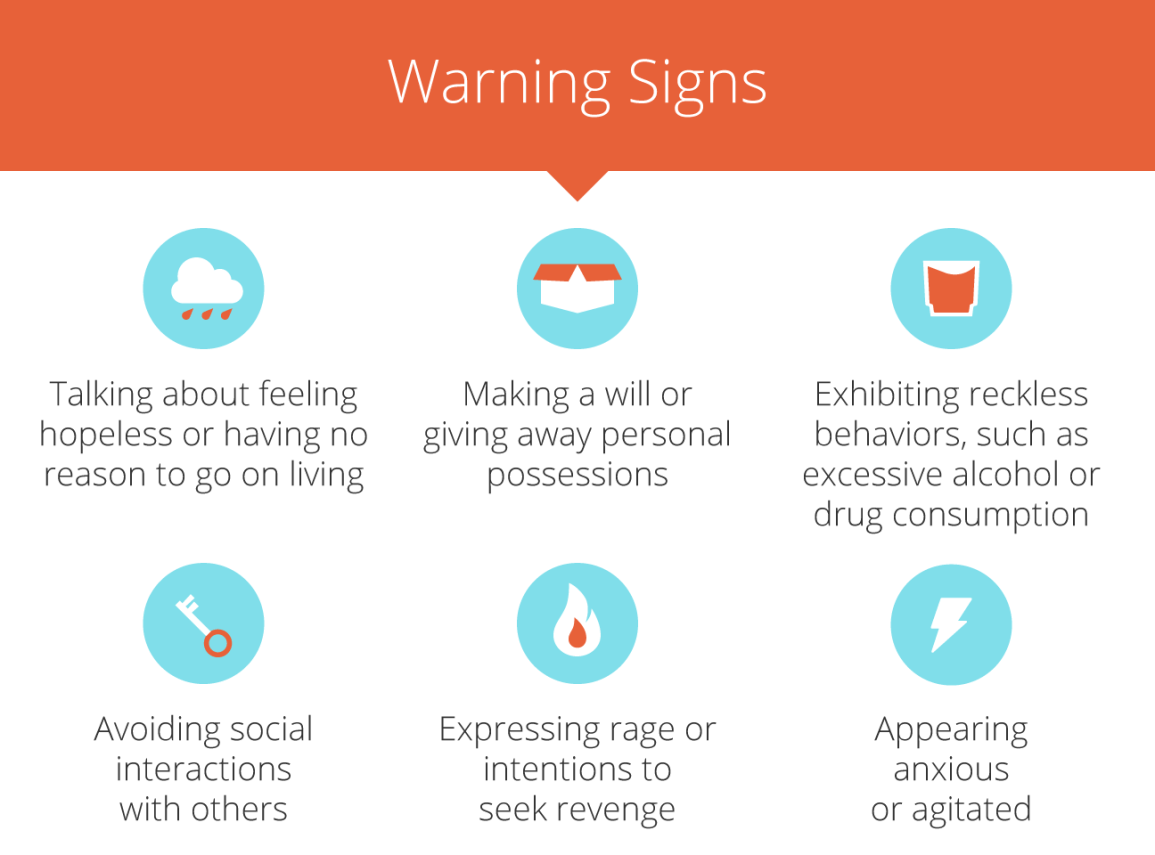
There are many warning signs of risk of suicide. If you see any of these signs in yourself or someone else, it is important to get help immediately. Some warning symptoms of risk of suicide include:
Behavioral Symptoms
Talking about wanting to die or hurt oneself: If a person says they want to die or hurt themselves, it is important to take this seriously.
Withdrawing from friends and family: People who are suicidal often withdraw from their social circle as a way to isolate themselves from support.
Giving away prized possessions: A person who is suicidal may start giving away their belongings or favorite things as a way to say goodbye to the world.
Looking for a way to kill oneself: People who are suicidal often research ways to kill themselves. This could include looking up how to make a suicide bomb or finding out where the best place is to jump off a bridge.
Increased drug use, alcohol abuse, binge eating, or gambling: People who are suicidal may start abusing drugs or alcohol more than usual as a way to cope with their pain. They may also engage in other risky behaviors like gambling or binge eating.
Sleeping too little or sleeping all the time: Suicidal people may either not be able to sleep at all, or they might want to sleep all the time because they feel so tired and hopeless.
Showing extreme mood swings: A person who is suicidal might show signs of depression one day and then be happy and energetic the next day. Then they will go back to being depressed again after that. They may even switch between these moods several times throughout a single day!
Mental Symptoms
Feeling empty, hopeless, or having no reason: People who are suicidal may talk about how they feel like there is nothing in their life worth living for. They might say that everything feels empty and meaningless.
Feeling being a burden to others: People who are suicidal often feel like they are a burden on everyone around them. They may say that they are not wanted or needed anymore.
Feeling trapped or in unbearable pain: Suicidal people feel like they are trapped and cannot escape their situation. They may also say that the pain is too much for them to bear.
Feeling hopeless or having no purpose: Suicidal people feel like there is no point in living anymore because they think nothing will ever change for them. They may also say that they have no purpose or reason to live on this earth anymore.
NOTE: If you see any of these warning signs in yourself or someone else, it is important to get help immediately. The National Suicide Prevention Lifeline provides free and confidential support for people in distress, as well as prevention and crisis resources.
Risk Factors
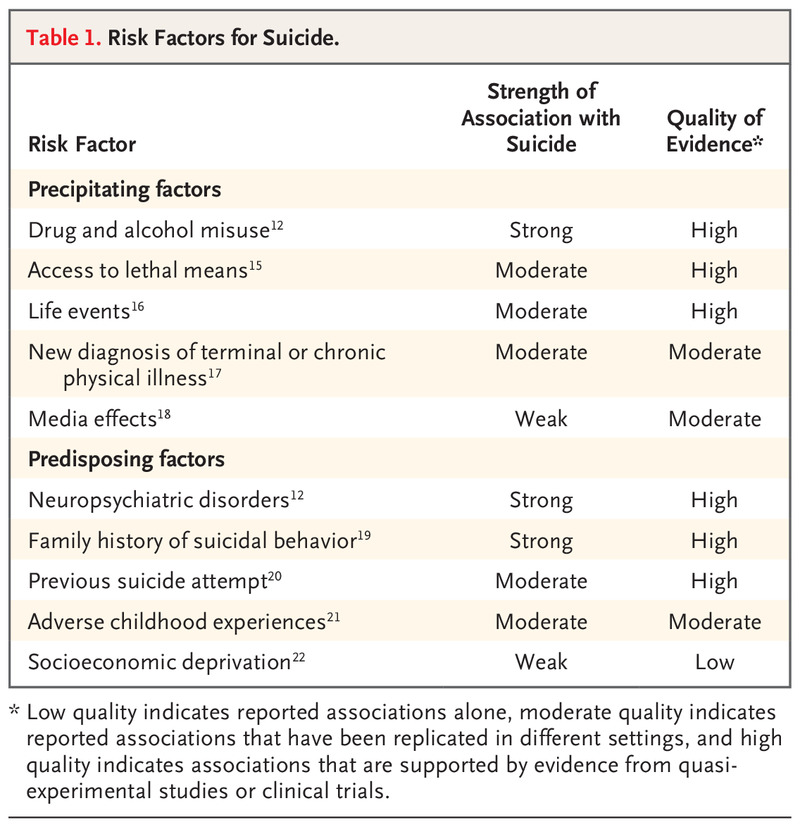 Many different risk factors can lead to suicide. The most common ones include:
Many different risk factors can lead to suicide. The most common ones include:
Internal Risk Factors
Family history: A person’s risk for suicide may be increased if they have a family history of suicide.
Gender: Men are more likely to commit suicide than women, although the number of women who attempt suicide is higher than that of men.
Age: Young people and elderly people are both more likely to commit suicide. This is because they may feel like they have no other way out or that their life is not worth living anymore.
Schizophrenia: This mental health disorder leads people to see and hear things that are not there. It can be very frightening and lead people to feel like they are going crazy. As a result, some people with schizophrenia may become suicidal.
Depression: Depression is a common mental health problem that can lead people to think about killing themselves. People with depression may also have trouble finding meaning in life or feel hopeless about their prospects; this makes them more likely than others to commit suicide. In addition, those who are depressed tend not to seek help for fear of being stigmatized.
Bipolar disorder: This mental health condition causes people to experience extreme “highs” and “lows” in their moods. These intense fluctuations can make it hard for them to cope with life and they may feel like killing themselves as a way out of their problems. In addition, those who have bipolar disorder are more likely to attempt suicide than those who do not have the condition.
External Risk Factors
Access to lethal means: Having access to a gun or other form of suicide increases one’s risk for committing suicide.
Economic difficulties: Economic difficulties such as unemployment, poverty, and debt can lead to feelings of hopelessness and despair. As a result, some people may feel like suicide is their only way out.
Law enforcement issues: People who have been arrested for crimes are at greater risk of suicide than those who have not been in legal trouble because they may be feeling hopeless about their prospects.
Substance abuse: People who abuse drugs or alcohol are at a higher risk for suicide. This is because these substances can often lead to mood swings and make people feel more suicidal.
Previous suicide attempts: People who have attempted suicide before are at higher risk of trying again and succeeding in killing themselves than those who have never tried it before.
Lack of social support: People who do not have strong social ties are more likely to commit suicide than those who do have supportive relationships. This is because social isolation can be very damaging and lead someone to feel isolated, alone, and hopeless.
Relationship problems or divorce: Relationship problems and divorce can lead to isolation, loneliness, and depression; this makes it more likely for someone to commit suicide. In addition, those who have experienced a relationship breakdown tend not to seek help because they are afraid of being stigmatized by others.
Overcoming Suicidal Thoughts
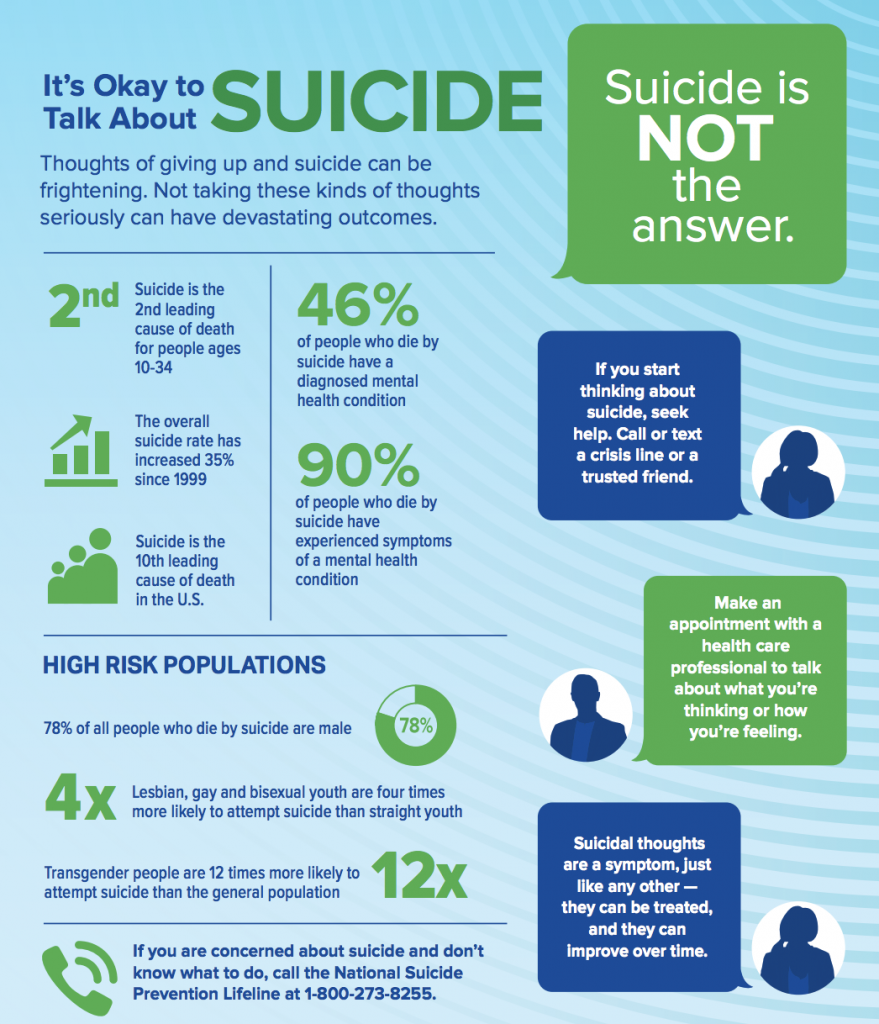
If you or someone you know is feeling suicidal, please seek help immediately! Here are some things you can do to overcome a crisis:
Connect With Others
- Talk to someone you trust: Talk to a friend, family member, or anyone else who you feel comfortable opening up to about what you’re going through. They may be able to offer support and guidance during this tough time.
- Stay connected to your support system: Make sure to keep in touch with the people who care about you and want to help you through this tough time.
- Get professional help: It’s important to find an experienced therapist who understands what it feels like to be suicidal. This person can help you work through your feelings and find other ways to cope with them.
Be Wary
- Stay safe: Make sure to avoid any dangerous situations or things that could put you at risk for suicide. This includes drinking alcohol, taking drugs, or being in places where there is a lot of stress or temptation to harm yourself.
- Avoid self-harm: If you are struggling with the urge to harm yourself, please seek help immediately. There are many different ways to get help if you’re feeling suicidal, so don’t hesitate to reach out for support.
Engage Yourself
- Stay active: Exercise can help relieve stress and make you feel better about yourself. Try to find an activity that you enjoy doing so it doesn’t seem like a chore.
- Practice mindfulness: Mindfulness is the practice of being aware of your thoughts, feelings, and body sensations to stay in the present moment. This can help you cope with difficult thoughts and emotions.
- Find positive distractions: When you’re feeling suicidal, it can be hard to do anything but think about your problems. However, it’s important to find things that make you happy and help take your mind off of suicide. This could include reading, watching movies, listening to music, or spending time with friends and family.
Talking To a Professional
If you feel like you can’t cope with your suicidal thoughts on your own, it’s important to seek professional help. Many different therapists specialize in helping people deal with suicidal thoughts. Here are some things you can expect from therapy:
- You will be heard and understood: The most important thing a therapist can do is listen to what you have to say. They will understand what you’re going through and will be there to support you.
- You will get help coping with your suicidal thoughts: A therapist can provide you with different strategies for dealing with your suicidal thoughts. They can also help you find other ways to cope with the pain you’re feeling.
- Your therapist will help keep you safe: Your therapist will be trained in how to keep you safe from suicide. If necessary, they can help you get into a hospital for treatment or find other resources that may be helpful for your situation.
Therapy Options
If you feel like talking to someone about your suicidal thoughts would make things worse, there are several different therapy options to choose from:
- Cognitive-Behavioral Therapy (CBT): CBT is a type of therapy that aims to help you change the thoughts and behaviors that may be contributing to your suicidal thoughts.
- Dialectical Behavior Therapy (DBT): DBT is a type of therapy that focuses on helping people manage their emotions and thoughts.
- Interpersonal Therapy (IPT): IPT is a type of therapy that helps people deal with their relationships.
- Family Therapy: Family therapy can be helpful for people who are struggling with suicidal thoughts because it allows them to talk about their problems with their family in a safe and supportive environment.
Medication Options
If you’re having suicidal thoughts, it can be helpful to talk to your doctor about medication options. These medications are most effective when used along with therapy and other coping strategies.
- Antidepressants: Antidepressants are a type of medication that helps people cope with feelings of sadness or depression.
- Anti-anxiety medication: Anti-anxiety medications are a type of medication that helps people cope with feelings of anxiety.
- Mood stabilizers: Mood stabilizers are a type of medication that helps people cope with bipolar disorder or other mood disorders.
Supporting Someone Through It
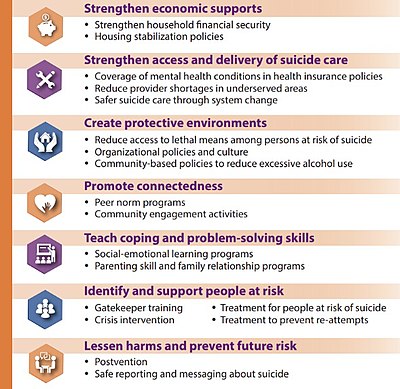
If you know someone who is suicidal, it’s important to support them. Here are some things you can do:
- Take them seriously: If someone is suicidal, it’s important to take them seriously. Don’t dismiss their thoughts or feelings as being unimportant.
- Listen without judging: The most important thing you can do for someone who is suicidal is to listen to them without judging them. Let them talk about their feelings and don’t try to change the subject.
- Don’t be afraid to ask: If you think someone might be suicidal, don’t be afraid to ask them about their thoughts and feelings. It can help them feel less alone if they know that you care about what they are going through.
- Be there for them: The most important thing you can do is be there for the person who is suicidal. Let them know that you care about them and are there to support them.
- Avoid giving them a lot of advice: It can be frustrating when someone is suicidal, but it’s important not to give them a lot of advice. This can make the person feel like they are being judged or told what to do.
- Get help if necessary: If you believe someone is in danger of harming themselves, it’s important to get help. You can call a suicide hotline in your area or take them to the hospital.
Experts’ Opinion On Risk of Suicide
According to experts, many different factors can contribute to a person’s risk of suicide. Some quotes from experts are here:
“Suicide is a complex issue that can have many causes. It’s important to take all of these factors into consideration when trying to understand why someone might be suicidal.” – Dr. Charles Nemeroff, MD
“I think it’s important to know what the warning signs are so that you can help someone who is suicidal. A lot of times, people don’t know what to do or say when they see a friend or family member struggling with thoughts of suicide.” – Omar Manejwala, MD
“It’s important for a person who is feeling suicidal to get help from a mental health professional. They can provide you with different strategies for dealing with your suicidal thoughts.” – Dr. Harold Koplewicz, MD
Brain Activity During Suicidal Thoughts

Recent research has shown that there are certain areas of the brain that are active when someone is thinking about suicide. These areas include:
- The prefrontal cortex: This area is responsible for regulating emotions and decision-making. It’s thought to be active when people are considering suicide because they are trying to weigh the pros and cons of taking their own life.
- The limbic system: This area is responsible for emotions and motivation. It’s thought to be active when people are suicidal because they may feel an emotional pull towards suicide.
- The anterior cingulate cortex: This area is responsible for regulating emotions. It’s thought to be active when people are suicidal because they may feel a lot of negative emotions such as sadness, anger, and guilt.
Case Study
To understand how suicide affects someone, it can be helpful to look at a case study. This is the story of one person’s experience with suicide:
“My name is John and I’m 22 years old. When I was 18, my parents got divorced and I felt like my whole world had fallen apart. It seemed like everything was going wrong in my life at once: My mom left home to live with her new boyfriend; my dad started drinking heavily, and my grades started to slip. I felt like I had no one to turn to and I didn’t know how to deal with my feelings.
One night, after drinking a lot of alcohol, I decided to take my own life. I went into my parents’ bedroom and took a bunch of pills while I was crying. Fortunately, I woke up in the hospital the next day. My mom was there and she told me that my dad had found me before it was too late.
I felt like a failure because I hadn’t succeeded in killing myself, but at least I was alive.” – John (age 22)
The Key Message
The key message from this case study is that it’s important to get help if you’re feeling suicidal. There are many different therapy options available that can help you deal with your thoughts and feelings.
Suicide Prevention Resources
If you’re feeling suicidal, it’s important to have a list of suicide prevention resources that you can turn to. Here are some helpful resources:
- The National Suicide Prevention Lifeline: This is a national hotline that provides support and crisis intervention for people who are struggling with suicidal thoughts.
- The Crisis Text Line: This is a free, national text-based support system for people who are struggling with suicidal thoughts.
- The Trevor Project: The Trevor Project provides crisis intervention and suicide prevention services to LGBTQ+ youth under the age of 25.
- Suicide Prevention App: There are several apps available that provide resources and support for people who are struggling with suicidal thoughts.
The Gift of Life
Despite the pain that suicide can cause, it’s important to remember that life is still a gift. This is something that was written by one person who has survived suicidal thoughts:
“The thing I want people to know most of all is that life is worth living, even when it doesn’t seem like it. There are moments in your life when everything seems like it’s falling apart. But if you can just hold on for one more day then things will get better. I’m proof of that.” – Jennifer (age 34)
It’s important to remember that there are people who love you and care about you. Reaching out for help can be a difficult thing to do, but it is the first step towards getting better.
Conclusion
In conclusion, we have looked at the risk of suicide, warning signs, self-help tips, and therapy options. It’s important to remember that everyone’s experience with suicide is different, so it’s important to be there for the person in crisis and to let them know that you care about them. If you or someone you know is feeling suicidal, please don’t hesitate to reach out for help.
A Word From Therapy Mantra
Your mental health — Your psychological, emotional, and social well-being — has an impact on every aspect of your life. Positive mental health essentially allows you to effectively deal with life’s everyday challenges.
At TherapyMantra, we have a team of therapists who provide affordable online therapy to assist you with issues such as depression, anxiety, stress, workplace Issues, addiction, relationship, OCD, LGBTQ, and PTSD. You can book a free therapy or download our free Android or iOS app.


